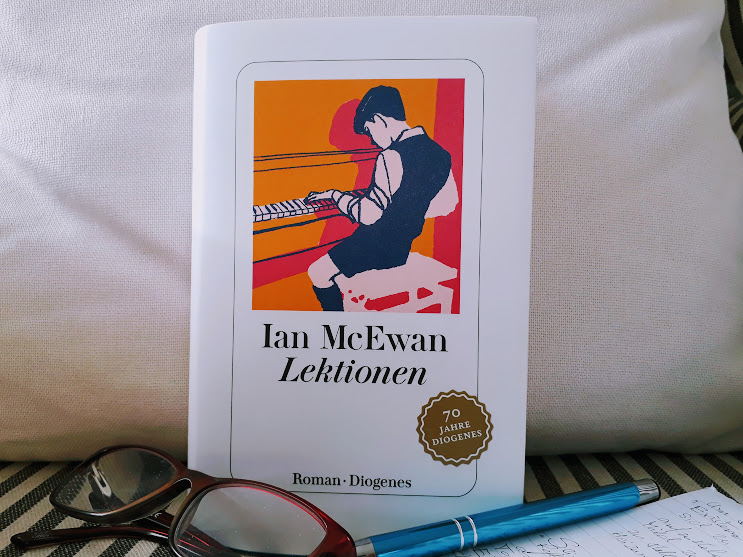

One of the joys of the novel is the way it weaves history into Roland's biography. McEwan is a storyteller at the peak of his powers. A BEST BOOK OF THE YEAR: Vogue - The New Yorker "Masterful. From the Suez Crisis to the Cuban Missile Crisis, the fall of the Berlin Wall to the current pandemic, Roland Baines sometimes rides with the tide of history, but more often struggles against it.

NEW YORK TIMES BEST SELLER - A NEW YORKER ESSENTIAL READ - From the best-selling author of Atonement and Saturday comes the epic and intimate story of one man's life across generations and historical upheavals. The lesson is that about some things it is better not to change your mind.Knopf, September 2022. This is a curious novel and one of the oddest things about reading it is seeing McEwan abandon the qualities – brevity, subtlety, strangeness – that made his great works resonant, in favour of slack writing, didacticism and received wisdom. “Freedom of expression was in retreat and digital public spaces resounded with the shouts of delirious masses…” thinks Roland, echoing views McEwan has expressed in articles and interviews.

Instead, McEwan interrupts with unnecessary historical context (“In the new year, 2021, in a post-solstice eclipse, the third lockdown began, the US president was replaced amid turmoil and at midnight on 31 January Europe was left behind…”) and jibes about Brexit, Christianity, Islam and trans rights. But Roland’s story would have been more affecting had McEwan stuck to telling it and let history take care of itself. Roland wisely reflects: “In surveying a life it was inadvisable to acknowledge too much defeat” and it is in these kinds of observations that the novel is at its strongest. The final part is full of death and decrepitude and, while McEwan writes convincingly about the body’s deterioration (“Falling, in showers, out of bathtubs, on pavements, over carpet edges, off buses, down slopes was how many among the old started to die”), narrative drive is the real casualty. His Booker Prize winning Amsterdam (1998) and his celebrated Atonement (2001) were distinguished by, among other things, his unshowy prose style.īy contrast, Lessons feels self-indulgent and under-edited and, as it goes on, the problems mount. Reading Lessons, I tried to suppress the suspicion that McEwan had written a long novel simply to show that he had the stamina.


 0 kommentar(er)
0 kommentar(er)
